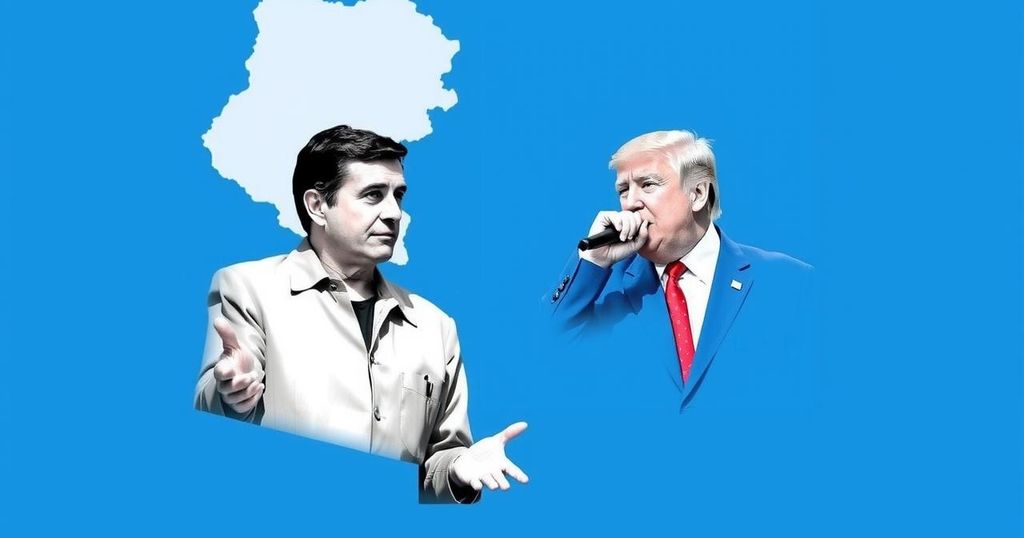Uruguay Anticipates Run-off Election in Presidential Race

Uruguay is heading for a run-off vote in its presidential election next month, with Yamandu Orsi of the center-left Frente Amplio party likely pitted against Alvaro Delgado of the center-right Partido Nacional. Initial polls indicated that Orsi received approximately 43.2 percent of the vote, with Delgado at 28 percent, necessitating a run-off as neither candidate achieved the required majority. The election also included referendums that faced early rejection from voters. President Luis Lacalle Pou’s administration grapples with rising crime rates as he cannot seek re-election due to constitutional restrictions.
Polling stations in Uruguay have officially closed following a presidential election that diverges from the significant political shifts observed across Latin America. Preliminary forecasts indicate a probable run-off election set for November 24, featuring two prominent candidates: Yamandu Orsi, a former history teacher and local mayor affiliated with the center-left Frente Amplio party, and Alvaro Delgado of the center-right Partido Nacional. The estimates provided by Equipos Consultores reveal that Mr. Orsi secured approximately 43.2 percent of the vote, surpassing Mr. Delgado’s estimated 28 percent. The third candidate, Andres Ojeda, a 40-year-old lawyer with a robust media presence, garnered between 15.5 and 16 percent of the vote, drawing comparisons to Argentina’s libertarian President, Javier Milei. According to pre-election polling, no candidate was expected to achieve a majority, underscoring the anticipated necessity for a run-off. In conjunction with the presidential elections, Uruguayans also participated in referendums aimed at adjusting retirement age limits and authorizing police night raids. Early exit polls suggest that both referendums were likely rejected by voters. The political landscape in Uruguay appears relatively stable, with President Luis Lacalle Pou of the Partido Nacional achieving a commendable 50 percent approval rating. However, his administration faces scrutiny regarding its effectiveness in addressing the increasing issue of violent crime tied to drug trafficking. Mr. Lacalle Pou is constitutionally restricted from seeking a consecutive term. A victory for Mr. Orsi, who has been associated with former leftist president Jose Mujica, could signify a political shift towards leftist governance following five years of conservative leadership. Notably, Mr. Mujica, despite his advanced age and health challenges, actively participated in the campaign, highlighting the enduring legacy of his administration on contemporary Uruguayan politics.
The current political climate in Uruguay is characterized by an unusual stability compared to neighboring Latin American nations, where political divisions have intensified. The ongoing presidential election is drawing attention due to its potential implications on Uruguay’s governance. With two candidates poised for a run-off, the country faces critical choices concerning crime management, economic stability, and social services, against the backdrop of a population accustomed to relatively high living standards and economic growth. Moreover, the political history of Uruguay’s leadership, particularly the influence of former president Jose Mujica, shapes the campaign dynamics and voter sentiments.
In summary, Uruguay’s forthcoming presidential run-off is set against a backdrop of unique political dynamics, highlighting the electorate’s mixed sentiments toward governance and safety. Mr. Orsi and Mr. Delgado represent differing visions for the nation’s future, as voters must now decide which candidate can best address their concerns, particularly regarding crime and economic progress. The outcome of this election could signify a pivotal shift in Uruguay’s political landscape, depending on whether voters favor a continuation of the conservative policies or look towards a return to leftist governance.
Original Source: www.aljazeera.com






